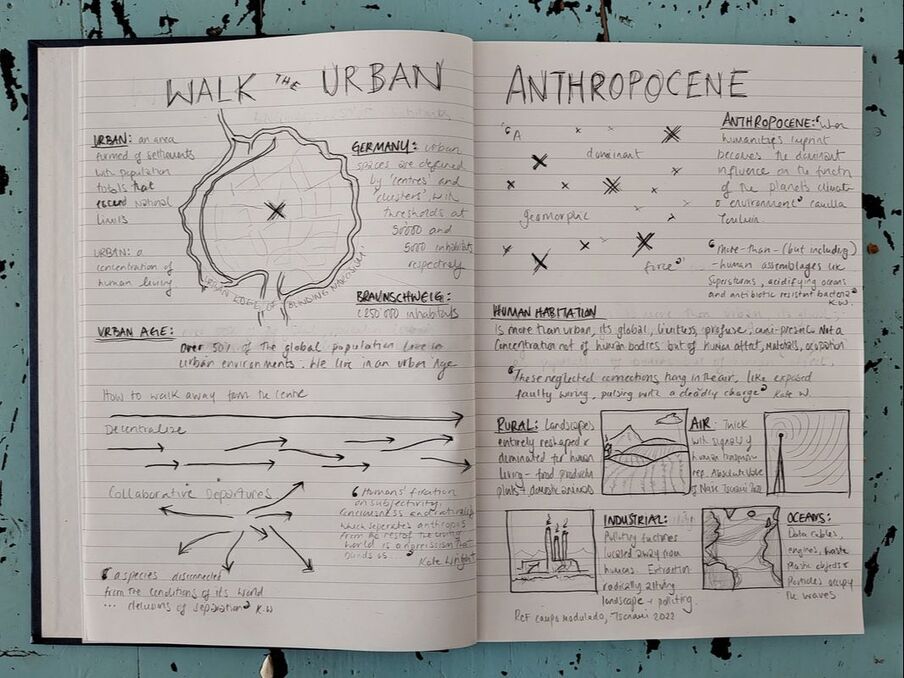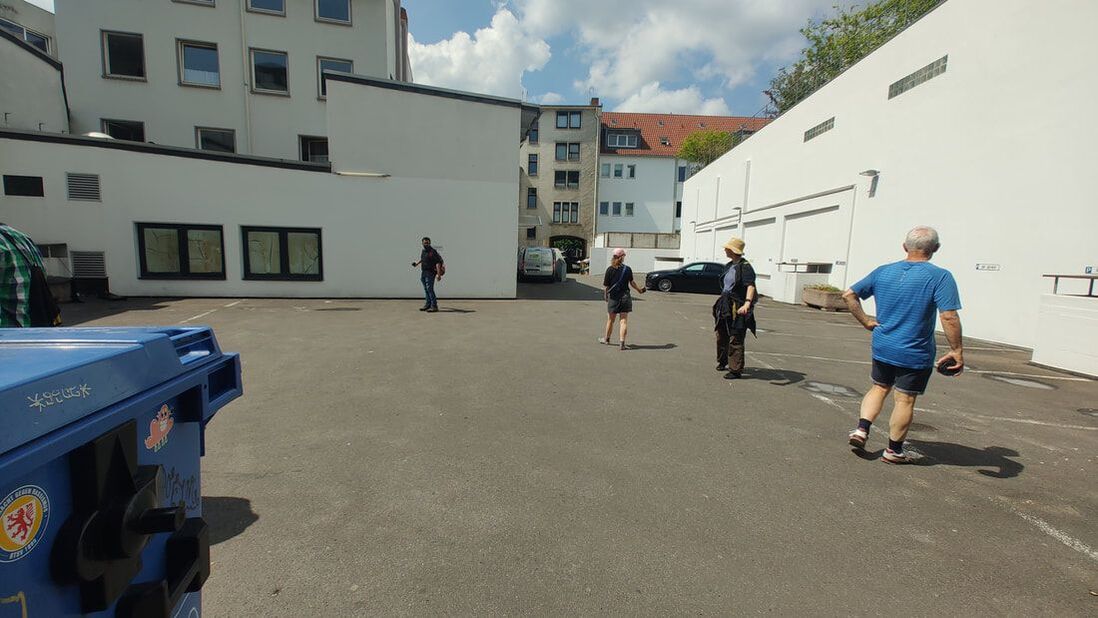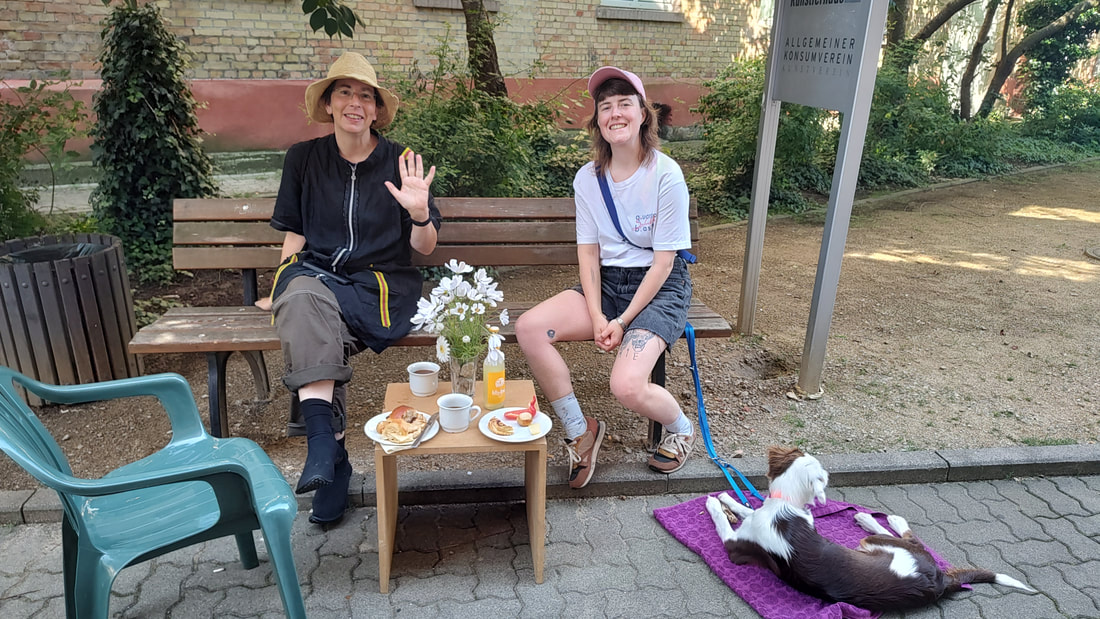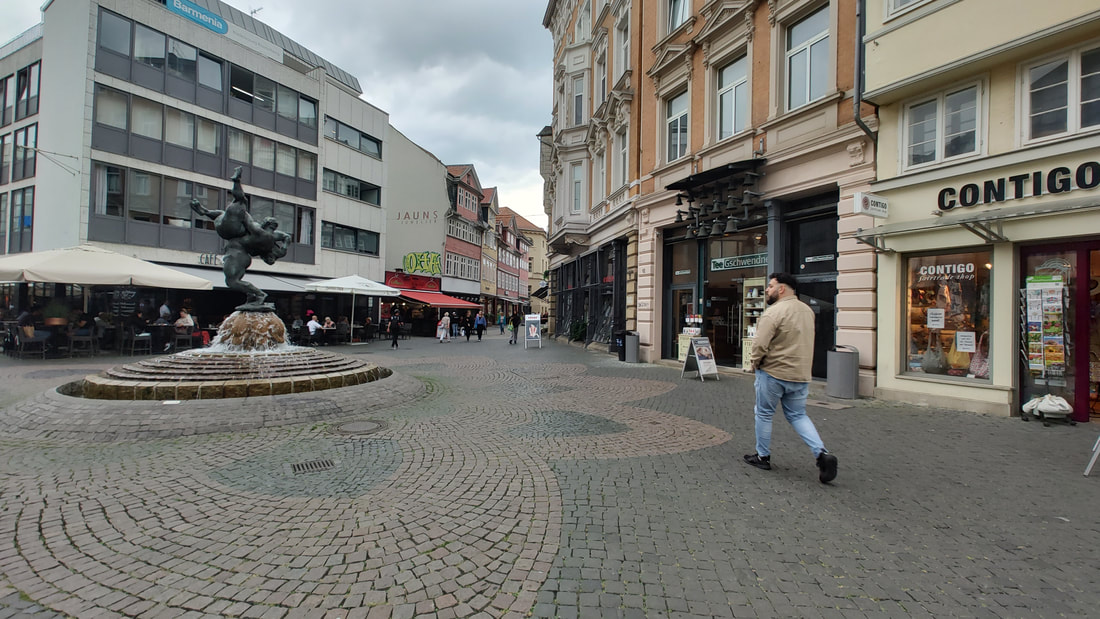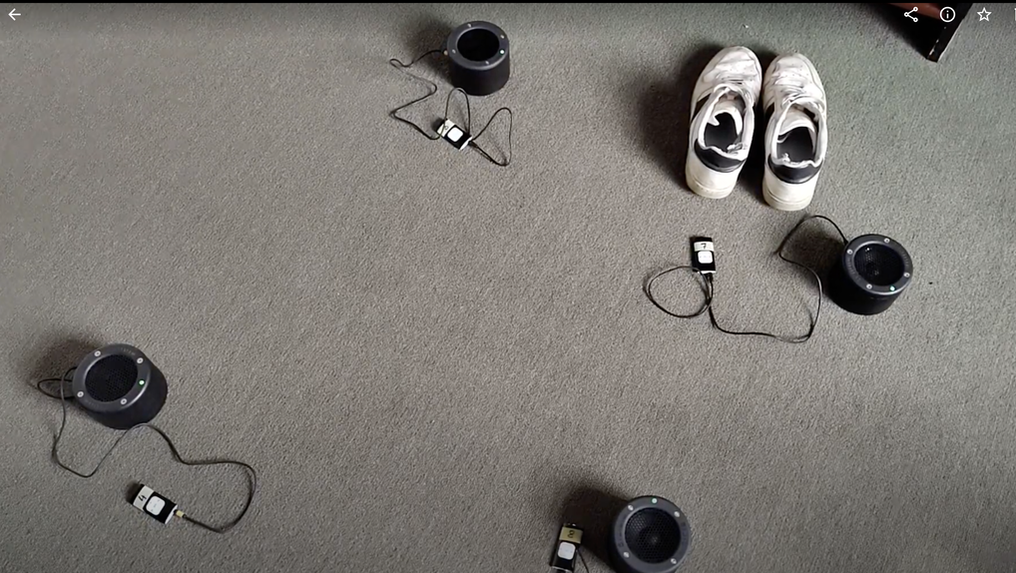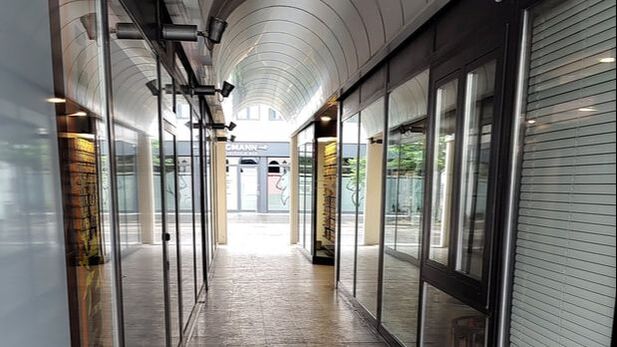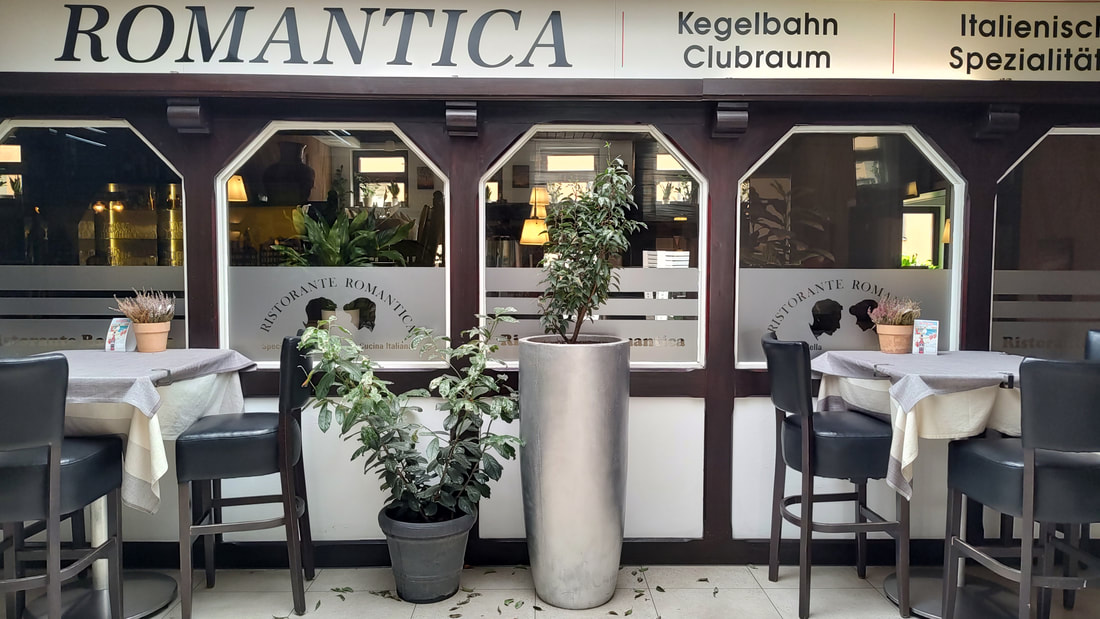|
A guided sound walk starting in the centre of an urban space and walking away towards its edge, exploring ideas of human entanglement with everything around us.
This soundwalk can be self-led, starting in
Braunschweig or in any urban centre 'Urban living is now a global condition with more than 50% of humans living in urban environments. We are not only more present across the globe now than when our cities were first built, but we are also entangled with it - 'In this present time of planetary devastation and subsequent ecological awareness of the fact that the end of the world might have already happened, what used to be called nature or culture becomes only an entangled subcomponent in a myriad of geo-bio-socio assemblages.' (i) As the term the Anthropocene defines, our human living has changed the environment around us, resulting in 'more-than-(but including)-human assemblages like superstorms, acidifying oceans, and antibiotic resistant bacteria’. (ii) We humans are in fact nature, we are not separate from it. We are all one, 'because everything we do to the world, gets done to us’. (iii) Environmental Humanities' researcher Kate Wright warns 'how tragic and dangerous the cognitive illusion of human exceptionalism can be. We can never disconnect from Earth's ecological community'; 'these neglected connections hang in the air, like exposed faulty wiring, pulsing with a deadly charge'.(iv) Come for a sound walk through the Anthropocene together. i) B. Cincik, T. Torres-Campos. Postcards from the Anthropocene, Unsettling the Geopolitics of Representation. Barcelona: dpr-barcelona: 2022. p14. ii) K. Wright. Becoming-with. Environmental Humanities Vol 5, Issue 1, 2014: pp. 277–281 iii) AM. Kanngieser. “Ecofascism and Nature is Healing”. amkanngieser https://amkanngieser.com/posts/ecofascism-and-nature-is-healing Accessed 27 February 2023 iv) K. Wright. Becoming-with. Environmental Humanities Vol 5, Issue 1, 2014: pp. 277–281 |
This work was commissioned by artist and curator Katrinem for Braunschweig is listening! festival in June 2023.
This work is part of Lisa Hall's DPhil research at University of Oxford working with the SONCITIES research project, and so it has received funding from the European Research Council (ERC) under the European Union’s Horizon 2020 research and innovation programme. (Grant agreement No. 865032).
This work is part of Lisa Hall's DPhil research at University of Oxford working with the SONCITIES research project, and so it has received funding from the European Research Council (ERC) under the European Union’s Horizon 2020 research and innovation programme. (Grant agreement No. 865032).
